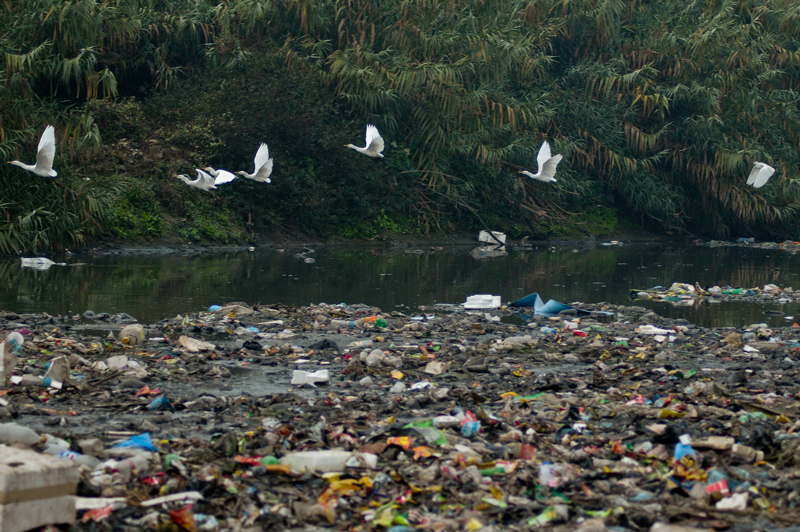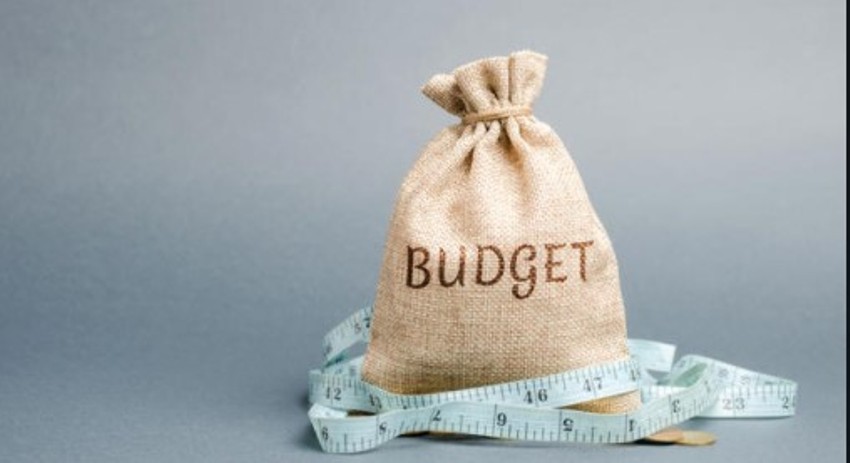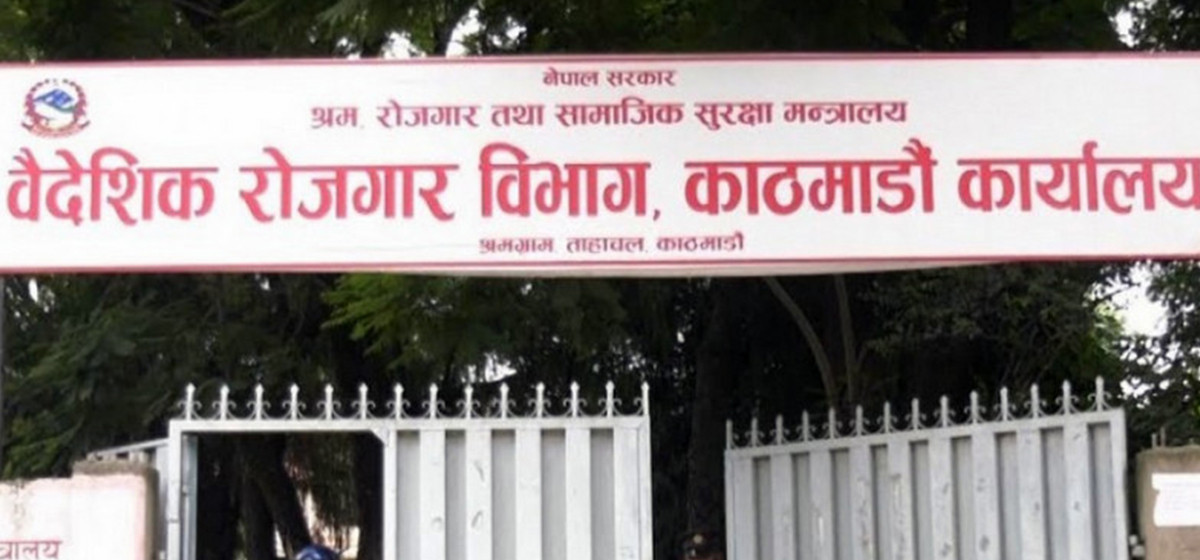
OR

Is there still a point now in having long discussions about the environmental hazards of plastic bags? It has been long established that its non-biodegradability will always make it a pollutant that we will not be easily able to get rid of. Since our school days, we have been taught that plastic bags do not decay. But is plastic bag just an alarming concern for environmentalists? While we talk about banning such a hazardous product, skeptics never fail to counterblast stating the loss to the national economy after the ban. Is this environment unfriendly product really economy friendly?
Plastic bags are produced after processing the granules that are made of petroleum.
Nepal, having to always depend on India and other Middle-Eastern nations to fulfill its petroleum demand, has to import the costly raw materials from other nations. Extensive import is blamed for poor performance of our Balance of Payment (BOP). Import of plastic granules is no exception. While our brothers and sisters pour in their blood, toil, tears and sweat in the Middle-Eastern countries under the canopy of scorching heat in order to make foreign land prosper, we are again sending our hard earned currency to the same land. Doesn’t the rapid use of plastic bags and its production offset a significant part of our remittance?
How much does a plastic bag cost? Few rupees. Plastic bag manufacturers have been arguing about heavy taxes amounting to about Rs 600 million a year. But the amount being reported is very dubious, given such a low cost of plastic bags.
As a person with ancestral roots Eastern district of Jhapa, I have seen jute being cultivated in large farms. I have seen the greyish raw jute being soaked in water and then dried in the sun. But on my last visit to Jhapa, I could hardly see any farms where jute was cultivated. It is no surprise to me that the country that used to be a major jute exporter to Europe three decades ago, and whose one of the major sources of foreign exchange was the golden fiber, today imports 80 percent of its jute requirement from India and Bangladesh. Nepal imported Rs 2.30 billion worth of jute only in last fiscal year. The humongous jute industries which had a high stake in boosting and strengthening Nepali economy from within like Biratnagar Jute Mill, Baba Jute Mill, C. M. Jute Mills, Nikki Jute Mills, Pathivara Jute Mills, have halted production. Jute bags that used to be available some years back are not seen in the market these days. While we are using 4.7 million plastic bags everyday in Kathmandu only, we are not being able to recognize our own local natural produces such as jute, hemp, cotton, Daphne Bhoula as the alternatives of plastic bags that carry a vast economic empowerment and sustainability opportunities along.
They say plastic bags help the poor to prosper. If you also think so, here is a question for you: For how long did you use the plastic bag that you got while fetching the milk this morning? Only along the way from the shop to your home, right? If we take an average time of the usage of plastic bag, it is mere 12 to 18 minutes. You go to a store, you ask for a bag along with the goods that you are buying, come home and dump it. It is a waste.
And that waste you just fetched cost some money for a small vendor you just bought the goods from. Now that is not what I call poor friendly merchandise. What about the vegetable vendors on the road who struggle so hard to earn their livelihood? Are these bags really helping to uplift the base of pyramid’s economic standard? As time passed by, we became so lazy and ignorant that we forgot how we used to shop not so long ago.
We just do not bother to carry our own bags, which was a part and parcel of shopping in past days. And we tend to hide our laziness saying that if I do not be lazy, I will be hitting on someone’s livelihood!
It is said that plastic bags are cheap. Not really. The initial price that one pays for a product is not the only cost of the product. Yes, plastic bags are initially cheap but what about all these hidden costs that are embedded? Who is going to internalize all the externalities that are created by plastic bags? We have always become the victims of our myopic vision. But it’s time we think in a way that is good for the present and also is a pleasant ‘present’ to the generations to come. Now it’s totally up to us where we want to be: be a part of the solution, or be a problem and keep complaining.
Hardik is a campaigner of No Thanks I carry my own bag. He is currently a student at NALSAR University of Law, Hyderabad.
You May Like This

Rivulet sweeps away two children
SOLUKHUMBU, June 23: Two children died when the Nelema rivulet at Dudhkoshika rural municipality of Solukhumbu district swept them away. Read More...

Legendary singer Pannakaji Shakya passes away
KATHMANDU, Jan 25: Musician and singer Pannakaji Shakya has passed away. He was 85. ... Read More...

Folk singer Gurung passes away at 42
KATHMANDU, Aug 25: Nepali folk singer and musician Khem Raj Gurung, who was best known for his hit song "Wari... Read More...






Just In
- CAN adds four players to squad for T20 series against West Indies 'A'
- ‘Precast' technology introduced in the construction of bridges along Muglin-Pokhara road
- Leopard attack injures young man in Kanchanpur
- SC rejects writ petition filed against Home Minister Lamichhane
- Nepal and China sign two agreements in the presence of Finance Minister Pun
- Pun released on bail in Supreme Cooperative fraud case
- Govt should not look for enforcing populist budget for next FY: Former finance ministers
- DoFE requests relevant parties to provide essential facilities to foreign workers traveling abroad













Leave A Comment